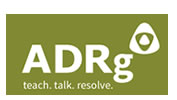
All About People
Need help to resolve your business, personal or employee conflicts & disputes?
It can be difficult to find a way to settle disagreements between two or more people. When the disagreement impacts your business, the ramifications can be even more significant. In this section we'll explore what mediation is and why it's so beneficial for commercial relationships. We'll also break down the benefits of mediation for the parties involved.
Mediation is a process whereby one or more impartial third-party mediators assist those involved to move forward and reach mutually agreeable outcomes.
There are many reasons why mediation is preferred to arbitration, litigation or other forms of dispute resolution. The key advantages of mediation are:
Usually, with mediation the duration is up to a day and does not require court application fees or additional legal support (though this depends on whether you have instructed lawyers).
The length of time from enquiry to conclusion is far quicker than other procedures because there are no court waiting lists.
The time is purely dependent upon the availability and preparedness of those involved. It can happen within a couple of weeks, if everyone is ready and available.
The parties are in control of the outcomes and there is no third-party decision-maker, unless you instruct your mediator to engage with Evaluative Mediation.
This usually means that enforcement of outcomes is not an issue as people tend to stick to what they have mutually agreed.
Mediation can be used at any stage of the process to help clarify or facilitate better communication. There does not need to be an actual dispute or conflict.
To understand how mediation works, it's important to understand the different roles that are played by the mediator and the participants.
The mediator doesn't take sides and isn't affiliated with either party in the dispute. They are a neutral sounding board for both parties involved in the conflict, meaning they can listen objectively without providing any input on whether they agree with one side of the argument more than the other. The role of the mediator is to help those involved re-phrase, understand and better communicate the issues and aims for resolution.
The Participants' role is to act in good faith i.e. to genuinely attempt to fix the issues. There is no obligation to come to a formal agreement but 90 per cent of matters settle because people are open minded and allow the conversation to happen.
Supporting individuals can serve an important role to ensure that the participants are informed and can make decisions based on the information available, and to help protect the Participants' interests. Supporting individuals should not impose their own opinions and should not be obstructive in the conversation and mediation process.
The mediator is a neutral third party that facilitates the discussion between the parties involved in a dispute.
The participants are the people who are involved in the dispute.
These may be your legal or other professionals, or colleagues (if appropriate).
Mediation is suitable for most conflict and disputes where businesses are involved. It is ideal for a wide range of matters because the process is quick and empowers those involved to make pragmatic decisions and keep the business relationship on track.
The main areas which mediation can assist are:
Where a contract is not performed as expected the parties will be seeking to remedy the situation. The available remedies for performance will vary depending on the parties and the circumstances. Mediation provides an excellent framework for those involved to work out what they want and better communicate their expectations. Parties are free to choose remedies which work for them when using mediation, which is less restrictive than what can be achieved using litigation.
Where the continuation of the commercial relationship is envisaged, mediation supports the discussion and empowers the parties to choose how to ensure that the contract is performed (and other contracts if appropriate) and re-align the relationship.
Mediation is an ideal platform to explore issues and improve communication in a confidential setting, ensuring that each organisation's reputation remains intact. If the commercial relationship cannot be saved, the parties can agree how to end the agreement and manage obligations and expectations, avoiding litigation and additional costs to be incurred.
AAP are accredited Civil & Commercial and Workplace mediators with experience across a wide selection of business-centred matters including:
Please contact us to discuss your needs and how we can support you with a speedy managed cost resolution.

Strategic Advice and Guidance for you and your organisation. Our accreditations:



